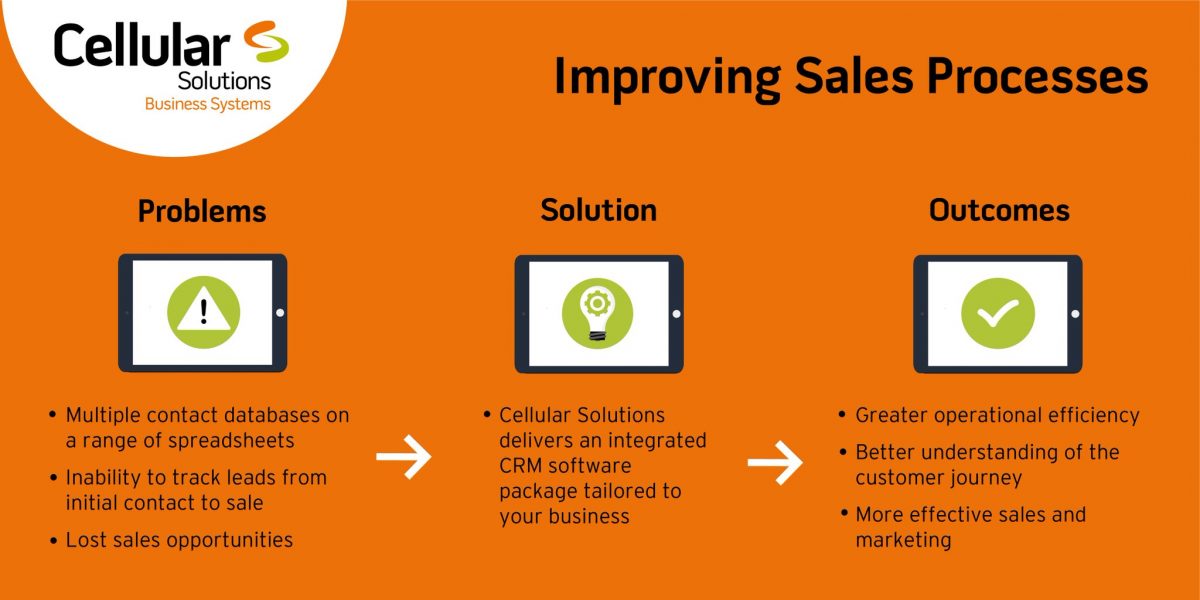Case Study: The Bridges Shopping Centre
Introduction The Bridges shopping centre, situated in the heart of Sunderland city centre, is the home
Find out more
Derek Curtis, Director of Business Systems at Cellular Solutions is often asked, “what is the key to a successful CRM implementation?”
In our latest Ask the Expert guide, he explains how companies can ensure all stakeholders are on board with any CRM installation, and that it’s used as effectively as it can be.
I originally wrote this post on how to make sure you had a successful CRM implementation about three years ago but it is still very relevant today, maybe more so than ever, so I wanted to share it again. First and foremost remember the system or technology is only part of the equation, people and processes are just as important as the technology – more on this below.
I have just returned from a demo with a prospective customer considering a new CRM project and was inspired to write this post. WHY? Well simply because when the company showed me their existing system which is running out of steam, it was the boss that showed me it! That is quite powerful because I left their office with full knowledge that their project would be a successful CRM project – The boss is behind it!
All too often I visit existing customers and it is clear that the boss does not even know how to log on. How do they ever expect to get buy in if they don’t use it themselves? Sadly, more often than not those projects fail, usually blaming the software or the implementer or the staff. In most cases the blame lies much closer to home and failure could be easily avoided with a slightly different approach. There follows some points that may help you implement your software more successfully.

Vision
When starting out on the path to a successful CRM Project it’s important to have a clear vision of what you are trying to do. What are the most important tasks you want to achieve in implementing your new CRM system? Better visibility of the pipeline, better control over diaries, better management of customer service issues, quicker order to invoice timeline, quicker prospect to customer timeline to name but a few. Whatever your vision is, make sure it is well defined and clear to all concerned. Obviously your objectives may change as you move forward but starting off in a clear direction is the only way to start.
Once that vision is clear and your implementer has helped you build the system, make sure you get some training on the system and then start using it straight away. As each day passes after the training you will forget parts of what you have learned. You need to be ready to hit the ground running immediately. You also need to make sure your staff are prepared for the system – remember the People part of the equation?. They should already have a clear understanding of your own business processes. The new system, if built correctly, should mirror those processes and will slot in easily with the correct training.
By far this is the most important advice. Keep your vision simple and your implementer is able to build the system quicker and easier, saving you money. Also your users will accept the system quicker, decreasing your ROI timescales. Taking a modular approach to implementation will also help with this. Start with Phase 1 which are, say, the top 5 points from your vision. Let Phase 1 bed in and then move to Phase 2 which are perhaps the next 2 points in your Vision and so on.
It is reasonable for your implementer to have made the following assumptions.
So, in a nutshell, make sure
Keep those points in mind with your successful CRM project you won’t go far wrong. If you are the boss reading this, then make sure you lead by example and use the system yourself. Everyone else will have to follow!
If you’re still in need of some guidance regarding CRM systems, get in contact with Derek Curtis via email or calling 0191 516 5990. If you’ve got a question about a CRM system you’re currently using, feel free to tweet us or leave a message for our Experts!
Introduction The Bridges shopping centre, situated in the heart of Sunderland city centre, is the home
Find out more
Introduction Founded more than 30 years ago and situated in Carrbridge in the Scottish Highlands, Landmark
Find out more
Changing Lives is a national registered charity that provides specialist support services for 6000 vulnerable people
Find out more

Keep your data safe and secure - and improve cybersecurity.

Support expansion by putting the most effective business communications and systems in place.

Get paid quicker, reduce the time your business spends on credit control, and cut out administrative headaches.